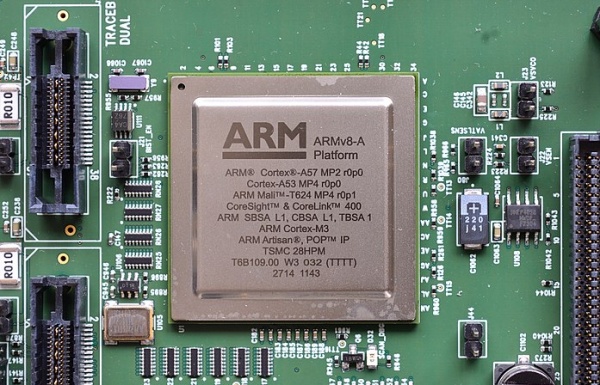No ARM sale, please
Because microelectronics make all your world work.

ARM is one of the most important companies that you are likely never heard of. ARM is the UK-based company that:
- designs many kinds of low power consumption chips used in countless mobiles phones, as well as other special chips (“GPU coprocessors”) used in Artificial Intelligence (AI) applications
- is the world’s most valuable IP (Intellectual Property) company, with over 500 licensees that have produced over 160 billions of those chips
Besides being a very profitable company, ARM is a strategic asset for Europe, being the only “local” competitor to foreign giants like Intel, or nVidia
nVidia, that is the dominant American producer of processors for graphical and AI applications, just offered to buy ARM. But this, as just denounced in an open letter to the Financial Times is a move that, besides loss of jobs in UK, would have disastrous consequences for both the UK and Europe. Such a sale would, in fact:
- “destroy ARM’s neutrality and even handedness to over 500 hundred licensees all over the world, many of which, including European companies are competitors of Nvidia”
- most seriously, make ARM a division of an American company to which the US CFIUS regulations apply
CFIUS is the Committee on Foreign Investment in the United States that, among other things, investments that “afford a foreign person certain access, rights, or involvement in certain types of U.S. businesses”.
What the last point above concretely means is that, as the letter puts it, “the American president can decide which companies ARM is allowed to sell to worldwide… One of the last great European technology companies with a dominant position in mobile phones would become part of the US trade armoury”.
Who could (or should?) buy ARM then?
It is high time, and has been for decades now, for European microprocessors and FPGAs. Globally, this is an age that demands regional microprocessors (obviously open ones), not total microelectronics monopolies.
This offer to buy ARM only makes a long-standing problem more urgent. How could the EU, or Europeans if you prefer, counter it? Some consortium of private investors or, as I have read on some forum, some EU public agency? That is another issue, but either solution would be better than further concentration in a sectors as strategic as microelectronics that makes all your world work.
Image source: Wikipedia
Who writes this, why, and how to help
I am Marco Fioretti, tech writer and aspiring polymath doing human-digital research and popularization.
I do it because YOUR civil rights and the quality of YOUR life depend every year more on how software is used AROUND you.
To this end, I have already shared more than a million words on this blog, without any paywall or user tracking, and am sharing the next million through a newsletter, also without any paywall.
The more direct support I get, the more I can continue to inform for free parents, teachers, decision makers, and everybody else who should know more stuff like this. You can support me with paid subscriptions to my newsletter, donations via PayPal (mfioretti@nexaima.net) or LiberaPay, or in any of the other ways listed here.THANKS for your support!